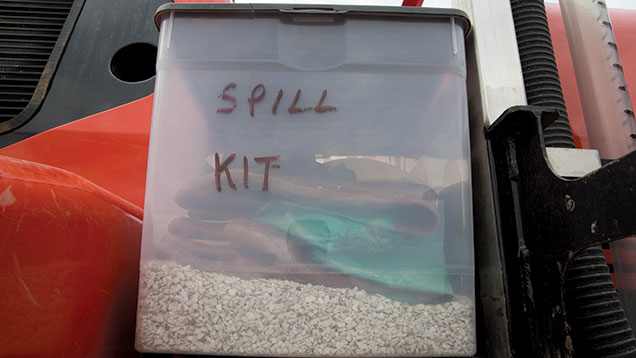Business Clinic: Advice on the health and safety responsibilities of farm employees
 (c) Tim Scrivener
(c) Tim Scrivener Farmers Weekly business adviser Peter Cusick, head of agriculture and food at Thrings solicitors, gives advice on the health and safety responsibilities of employees.
Q I run a large arable and contracting business with three full-time employees. All are valuable team members and all work hard. However one of them is inclined to take risks, not big risks, but this worries me.
I am constantly reminding him about the need to work safely, for example using full protective equipment and proper procedures. However I worry that when I’m not there, he might cut corners. How can I handle this – I don’t want to lose him, but feel I need to give him some sort of ultimatum so I can protect him, my other workers and my business.
A You have raised an important issue and you are right to be concerned. If you are suspicious that one of your employees has a tendency to cut corners or take risks, then perhaps this is down to his lack of understanding of his obligations and the possible consequences of his actions (both civil, criminal and in respect of his own employment).
It sounds as though now would be the perfect time to implement some health and safety training, and update your policies and procedures.
The starting point for that training would be the Health and Safety at Work etc. Act 1974. Attention is commonly focused on an employer’s duties, while the duties the act places on employees are often overlooked.
It’s important that all your employees are made aware that under section 7 of the act, it is the duty of every employee, while at work, to take reasonable care not only for his own safety, but also for the safety of other persons who may be affected by his acts or omissions.
See also: Interview – farm health and safety chief in the hot seat
Further, in relation to any statutory duty imposed on you as an employer, an employee must co-operate with you to enable that duty to be performed or complied with. The consequences can be severe, too. If an employee fails to discharge his duties under section 7, the employee may be liable to a fine of up to £5,000 and/or imprisonment for six months in the Magistrate’s Court or an unlimited fine and/or two years’ imprisonment if committed to the Crown Court.
As prevention is generally better than cure, re-emphasising those duties through training, and reissuing your health and safety and disciplinary policies, may have the desired effect.
You should certainly amend your disciplinary policy to list examples of misconduct and gross misconduct to include health and safety-related failures. In doing so, you’ll be better placed to implement the disciplinary procedure for dealing with any failures that do arise – for example, cutting corners or taking risks.
You will also be at far less risk of an unfair dismissal claim if you can show that you have followed your disciplinary procedure and given your employee fair warning of the consequences of his actions (for example: verbal warning; first written warning and final written warning), rather than a one-off ultimatum.
I would hope that a combination of reminding your employee of his own duties and the further training and re-issued policy/procedures as set out in this answer would be sufficient to minimise the potential risks set out in your question.

